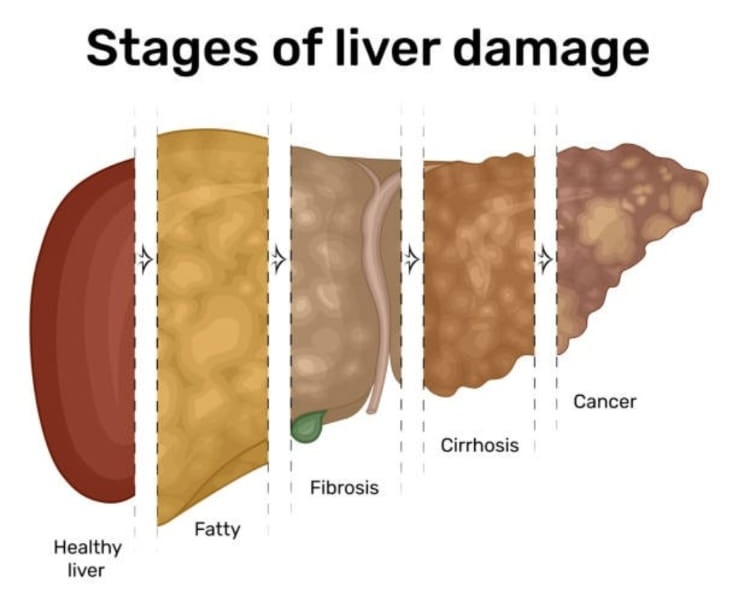ADVERTISEMENT
Understanding Liver Health: Distress Signals You Shouldn’t Ignore
Your liver is a vital organ that plays a crucial role in detoxifying your body, producing essential proteins, and regulating various metabolic processes. When your liver is under stress or damaged, it sends out distress signals long before it completely fails. Recognizing these signs early can be life-saving.
Common Symptoms of Liver Distress
1. Unrelenting Fatigue
One of the first signs that your liver is struggling is chronic fatigue. This isn’t just regular tiredness; it’s a deep, bone-weary exhaustion that sleep doesn’t alleviate. When your liver is overworked, it can’t process toxins and waste efficiently, leading to feelings of malaise and low energy. If you find yourself feeling persistently drained, it could be a sign that your liver is in trouble.
2. Jaundice
Jaundice is characterized by a yellowing of the skin and eyes, indicating that your liver is unable to process bilirubin—a waste product produced from the breakdown of red blood cells. When the liver is functioning properly, it helps to remove bilirubin from the bloodstream. If you notice any yellow discoloration, it’s essential to seek medical attention immediately, as this is a serious indicator of liver dysfunction.
3. Changes in Urine and Stool Color
Your liver plays a crucial role in waste elimination, and changes in urine and stool color can signal a problem. Tea or cola-colored urine indicates that your liver isn’t effectively removing waste, while pale or clay-colored stool suggests that bilirubin isn’t reaching the intestines. These signs warrant a visit to a healthcare provider, as they can indicate significant liver issues.
4. Swelling in the Body
Fluid retention is another symptom of liver distress. If you notice swelling in your ankles, legs, or abdomen, it may be due to your liver not producing enough albumin, a protein that helps keep fluid within your blood vessels. This condition, known as edema, can be uncomfortable and is a sign that your liver is struggling to maintain homeostasis.
5. Gastrointestinal Symptoms
Persistent nausea, loss of appetite, or vomiting can also indicate liver problems. Your stomach often knows something is wrong before you do, as the liver’s inability to function properly can disrupt digestion. If these symptoms persist, it’s crucial to consult a healthcare professional, as they can indicate underlying liver issues.
6. Right Upper Abdominal Pain
The liver is located in the right upper quadrant of your abdomen. If you experience pain or discomfort in this area, it could be a sign of liver inflammation or irritation. This pain can be dull or sharp and may signify that your liver is under stress, requiring medical evaluation.
7. Easy Bruising or Bleeding
Your liver produces several proteins necessary for blood clotting. If your liver is damaged, you may notice that you bruise easily or bleed more than usual. This can be a warning sign of liver dysfunction, as the liver’s ability to produce clotting factors diminishes.
👉 Continue reading on the next page…
ADVERTISEMENT
